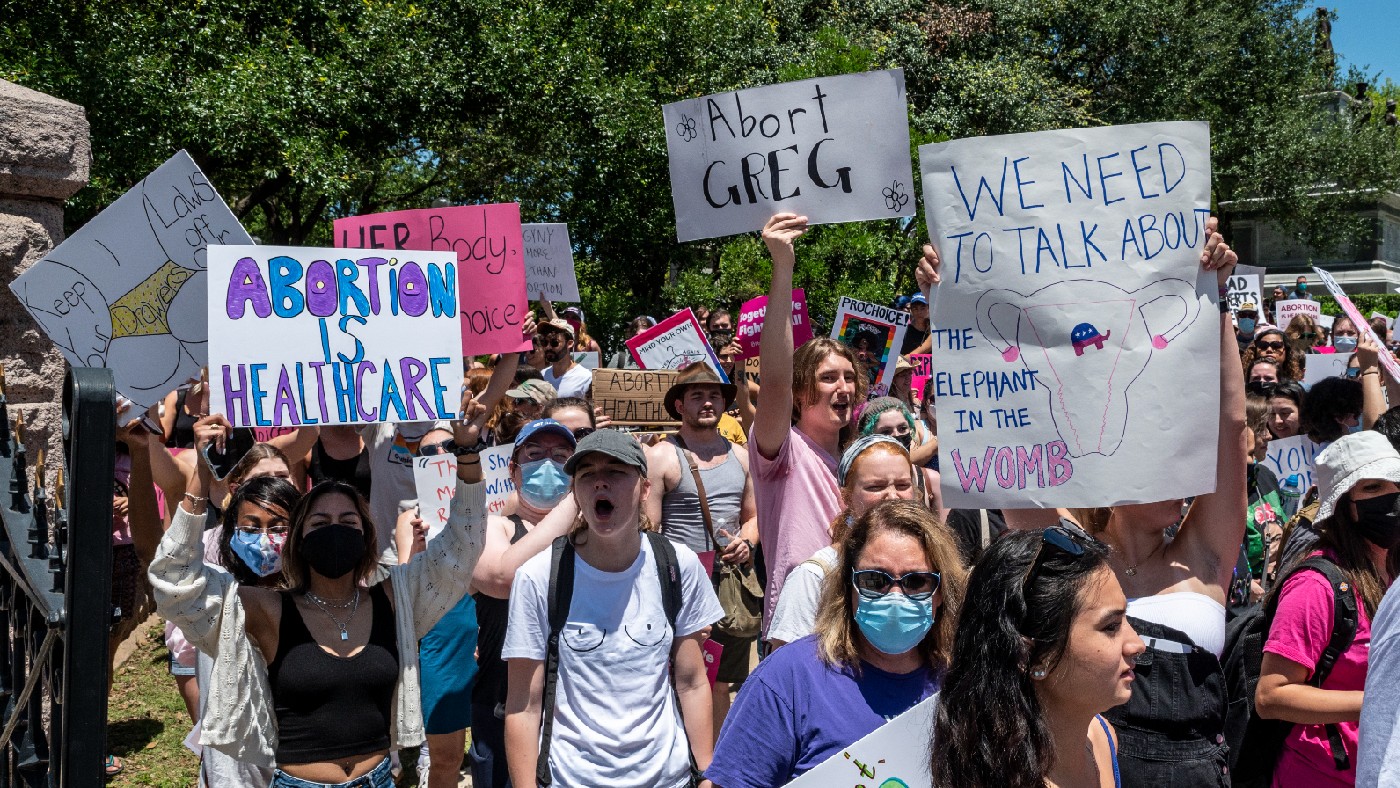How angry American voters might skew the midterms
While emotional turmoil may see greater levels of voter turnout it could also mean worrying times for democracy

A free daily email with the biggest news stories of the day – and the best features from TheWeek.com
You are now subscribed
Your newsletter sign-up was successful
Steven Webster, Assistant Professor of Political Science at Indiana University explains why US politicians have been whipping voters into an emotional frenzy ahead of the midterms.
Regardless of whether they live in a red state or a blue state, identify as Democrats or Republicans, or claim to be ideologically liberal or conservative, Americans have one thing in common.
They are angry – especially about this year’s midterm elections.
The Week
Escape your echo chamber. Get the facts behind the news, plus analysis from multiple perspectives.

Sign up for The Week's Free Newsletters
From our morning news briefing to a weekly Good News Newsletter, get the best of The Week delivered directly to your inbox.
From our morning news briefing to a weekly Good News Newsletter, get the best of The Week delivered directly to your inbox.
Americans’ anger is driven by contemporary political events.
Republicans are enraged by troubling economic indicators and perceived spikes in crime. Democrats, meanwhile, are angry about the U.S. Supreme Court’s landmark decision in Dobbs v. Jackson Women’s Health Organization, which overturned abortion rights enshrined by Roe v. Wade.
Politicians on both the left and the right are eager to capitalise on this anger. In fact, Democratic and Republican politicians alike deliberately and repeatedly seek to elicit voters’ anger. And, predictably, this anger leaves voters in a sour mood.
Recent polls reflect this reality.
A free daily email with the biggest news stories of the day – and the best features from TheWeek.com
Whipped into an emotional frenzy, Americans are likely to believe that things in the country have pretty seriously gotten off on the wrong track. So, too, do Americans believe that their preferred political party loses more often than not in legislative disputes.
Why, then, do politicians provoke anger if this emotional state leads to such pessimism? As a scholar who studies American politics and the author of “American Rage: How Anger Shapes Our Politics,” I believe the reason for this is quite simple: Anger provides ample benefits to those politicians who are able to use it most skillfully.
Angry voters, loyal voters
To begin, anger encourages Americans to vote.
Across a range of political settings, angry people are more likely to participate than those who are not angry. With elections increasingly being determined by which side can best motivate its base into showing up to vote, anger has become a powerful tool in a politician’s arsenal.
In addition to its propensity to boost participation, anger has been shown to play a role in shaping individuals’ decisions at the ballot box.
The angrier voters are at the opposing political party, the more likely they are to vote for their own party. Guided by the mantra that an angry voter is a loyal voter, politicians have a strong incentive to agitate the American public – incumbents and challengers alike.
Anger and negativity, rather than adoration and optimism, drive contemporary American political behaviour.
Political anger and social consequences
Though politicians’ strategy of appealing to the public’s anger brings them electoral benefits, this anger is not without costs. In fact, anger can cause Americans to lose trust in the government and alter their views about the opposing political party’s legitimacy.
Alarmingly, political anger has consequences that extend beyond how Americans view their governing institutions or the opposing political party.
When American voters are angry about politics, they are inclined to avoid social interactions or social events where they are likely to come into contact with those whose political leanings differ from their own.
I have found that anger leads Americans to avoid assisting neighbours with various chores, such as watering houseplants or watching over property when the neighbuor is out of town, if the neighbour supports the opposing political party.
Political anger also can lead Americans to refuse requests to go on a date with those whose political leanings are opposed to their own.
Most concerning, political anger has the ability to alter Americans’ friendships and familial ties.
When angry about politics, Americans are more likely to express a desire to end friendships with those who support the other political party. So, too, do angry individuals express a desire to reduce – or completely eliminate – contact with family members whose political preferences deviate from their own.
Wither democracy?
Anger’s ability to cause individuals to socially polarise has potentially drastic ramifications for the health of American democracy. Crucially, social polarisation precludes opportunities to form ties and build relationships with people from diverse backgrounds.
In societies divided along many lines, these interactions and relationships are essential to a healthy and functioning democracy. Among other things, such relationships forge bonds of mutual understanding and facilitate a climate in which good-faith cooperation is possible.
As American politics becomes increasingly fragmented along racial, religious and ideological lines, the need to form these cross-partisan social ties will become more pressing.
Anger’s ability to induce social polarisation, combined with politicians’ overwhelming incentives to appeal to our emotional fury, means that this will be no easy task.
Steven Webster, Assistant Professor of Political Science, Indiana University
This article is republished from The Conversation under a Creative Commons license. Read the original article.